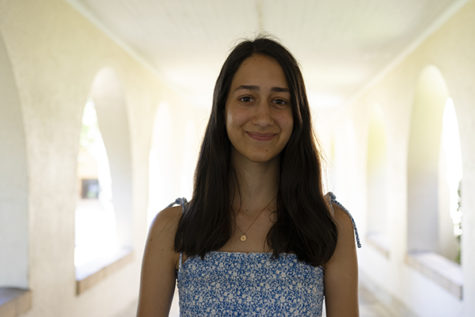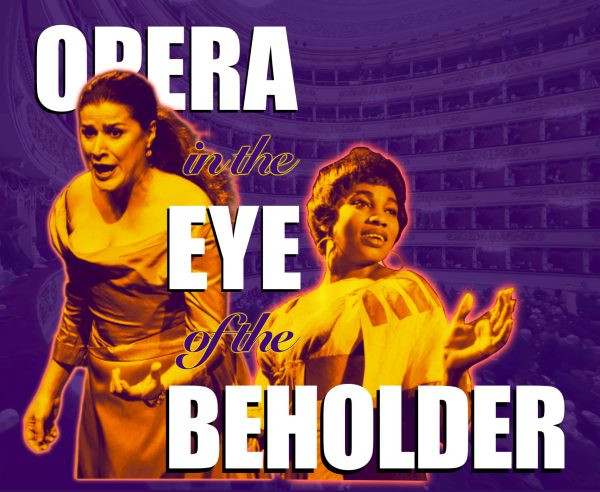Stop the Fame
As the stigma around school shooters continues to grow, the media has a choice to either fuel this growing fire of atrocities by over-analyzing the perpetrator, or extinguish the glamorization of these mass shooters.
This generation of youth lives in a world where they regularly read news stories about kids, similar to themselves, being trapped in their classrooms and held at gunpoint. As the paranoia around mass shootings continues to grow, the media plays a vital role in either fueling this fear or contributing to the healing of the victims and the general public.

Although the media attempts to denounce shooters for the notorious atrocities they commit, the constant media coverage often accomplishes an opposite effect. With their names and faces posted on news outlets and across social media, many feel that this attention acts as criminal glorification and awards the perpetrator free publicity, fame or even sympathy.
By giving attackers notoriety through focusing massacre crime stories on the shooters, it becomes easier for others to plan or execute similar shootings. The National Center for Health Research stated in a study that “Violent events are often covered by news outlets in great detail and spread immediately through mass media and social media. Experts believe that this media coverage can inspire others to copy these actions or commit similar crimes.”
In 2014 and 2015, researchers at Arizona State University conducted a study in which they examined data about mass shootings. They found that there was significant evidence of contagion in shootings as they spread over time and across regions. This means that like a disease, mass shootings spread to create many inspired violent acts. Through this, shootings spark new massacres, perpetuating a vicious cycle.
With the ever-increasing number of mass shootings, this issue has reached the center of attention and prompted people across the country to respond with various movements. “Don’t Name Them” is a rising movement that works to create thoughtful coverage that emphasizes the victims, survivors and heroes, rather than those suspected of committing the crimes. “We know that a substantial number of the attackers are motivated by a desire for notoriety or fame,” Pete Blair, the Executive Director of the Advanced Law Enforcement Rapid Response Training center at Texas Christian University said. “Giving that [fame] rewards their bad behavior.”

The “Don’t Name Them” campaign found that most people recognize the names of the gunmen perpetrators involved, yet they can’t name any of the victims or the heroic individuals who put themselves in harm’s way to stop mass shootings. “The focus should be on the community, heroes and, where appropriate, the victims,” Blair said.
To prevent the continuation of publicizing the information of attackers in media, “Don’t Name Them” urges the public to contact news sources who focus their coverage of an attack on the shooter and inform them that they do not like this type of news. Through this, the news outlets, can begin to go along with the wants of the people in how they present news.
Recently, more people have called attention to how publicizing the specifics of shootings, can negatively impact the public. Reports suggest that most sources prioritize getting the story out there and being objective with their reporting rather than spending time and assessing the potential risks of focusing on the perpetrator. In response to this, news outlets such as NBC have altered their ways of reporting by referencing the suspects as the “shooter” and omitting the names entirely.

However, without the participation of popular new outlets the desired change, this campaign wishes to accomplish hits a wall. A similar organization called “No Notoriety” was initiated by affected community members of mass shootings and is working to reduce future tragedies by stripping the media of any identification of shooters. The movement calls the media to be mindful that often shooters shoot in public places to gain national recognition, and that by spreading it on the internet, it encourages them.
People against the prevention of publicizing information of the shooters state that by providing the public with this information is crucial to stop future shootings. They believe that this can lead to the public misidentifying shooters and expose the perpetrators’ motives. When news outlets speak of mass shootings, and publicize information and photos of the shooter, they tend to do this after the attacker has been found and arrested, which only brings fame to the attacker and provides inspiration to potential mass shooters.

Although the expectation for transparency of public information is an important issue, in cases where the mass shooter’s identity is revealed, it causes more damage than good. By glorifying these people through publishing their names and personal data, it creates more suffering of the survivors and victims’ families, potentially warranting further attacks. These harmful effects motivate those who are trying to transform the present media narratives of mass shootings in the media, turning them into ones that better inspire hope and healing amidst a great tragedy.
Photos by: Claire Li








